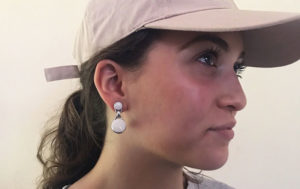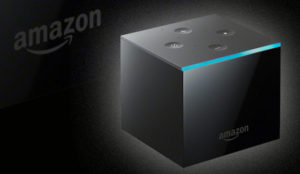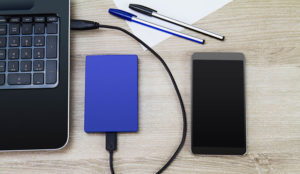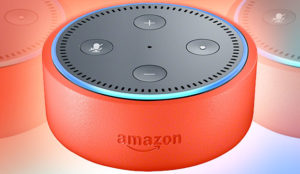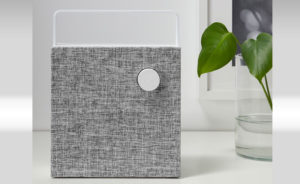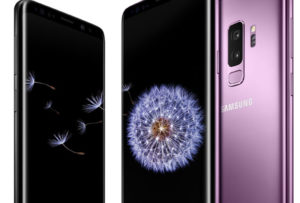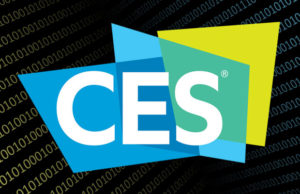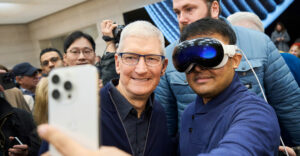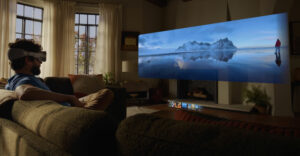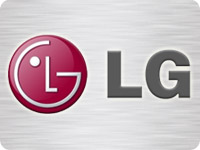
LG Electronics is dipping its toes into the burgeoning market of wearable fitness devices.
The LG Lifeband Touch and the LG Heart Rate Earphones will be available to the public starting May 18. The devices are compatible with both iOS and Android smartphones.
The Lifeband Touch includes a 0.9-inch OLED touch display that offers a range of fitness data, aimed at enabling wearers to refine their workout schedules and objectives. It features a flexible wristband display and design, and it has two sensors, an altimeter and a triple-axis accelerometer that work in tandem to provide biometric data.
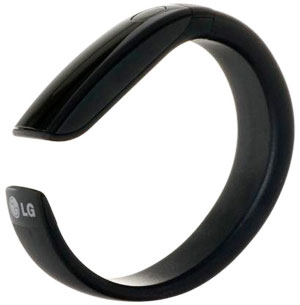
The device offers more than just health-related information. It allows users to check caller-ID details when they have incoming calls (a feature that can be turned off to keep wearers focused on their workouts), view text messages, and control their smartphone’s music functions from the touchscreen.
5-Day Charge
The wristband includes a 90 mAh battery — enough for the device to last up to five days on a single charge, according to LG. It features Bluetooth 4.0 connectivity, and it comes in three sizes: medium (with a weight of 49.9 grams and a band length of 166 millimeters), large (50.1 grams, 181 millimeters), and extra large (53.1 grams, 196 millimeters).
The Lifeband Touch works in tandem with the LG Fitness app as well as several other fitness apps, including MyFitnessPal, Runkeeper and MapMyFitness.
The wristband does not include a heart rate monitor, however — that functionality is left up to the other product LG has debuted. The strapless Heart Rate Earphones measure the wearer’s heart rate through a PerformTek sensor built into the earphones. It measures blood flow signals inside the wearer’s ear, a process that provides more accurate biometric data than other wearable fitness devices, LG claimed.
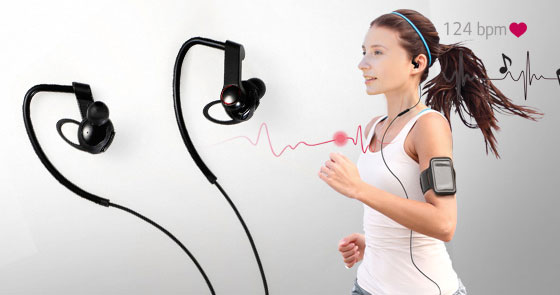
The earphones may be used alone or alongside the Lifeband Touch. An separate clip-on medallion is used to provide the Bluetooth connectivity between the earphones and wristband or smartphone. A user running the LG Fitness App can receive real-time audio updates on heart rate and oxygen consumption.
The earphones use a 200 mAh battery and have Bluetooth 3.0 connectivity. The headset weighs 26.7 grams with an additional 18 grams if the wearer adds the clip-on medallion. Users also can place hands-free calls using the device.
Retailing Soon
The devices are compatible with iOS 6 and above on iPhone and iPod touch, as wel as with Android 4.3 and 4.4.
LG G2 and Galaxy S4 owners running Android 4.2 can also use the devices in tandem with their smartphones.
The devices will be available to consumers in the U.S. starting Sunday. The Lifeband Touch retails at US$149.99 and the Heart Rate Earphones are priced at $179.99. The Lifeband Touch will be available in key Asia and Europe markets at a later time, LG said, but it did not provide further details.
Crowded Market
“LG is launching into an already crowded market,” John Feland, founder and CEO of Argus Insights, told TechNewsWorld.
“This year, CES was the land of both 7-inch tablets and wearable devices. There were as many fitness bands as there were smartphone cases,” he said. “With Samsung, Motorola and now even Acer offering fitness smartwatches, along with … Fitbit, Garmin and other manufacturers, it is becoming a real challenge to sift through which products will do well for consumers.”
Recently, Amazon added a wearable technology section to its online store, providing consumers with a one-stop shop if they were interested in comparing and purchasing a wearable fitness device.
“Unfortunately, the market is becoming very crowded. There are so many fitness devices that it is difficult to keep track of them. The CES showroom floor was filled with these devices,” said Jim McGregor, principal at Tirias Research.
“If that’s not difficult enough, categorizing these devices is becoming a challenge. I struggle to call the LG products ‘fitness devices’ because they can do much more than just fitness tracking,” he told TechNewsWorld. “In the search to stand out from the crowd, everyone is looking to combine as many functions into a single solution as possible. However, I do have to admit that the heart rate ear plugs are a rather unique concept.”
Athlete Appeal
“It’s always hard to predict what will take off and what will flop,” said Laura DiDio, principal at ITIC.
“That said, the new LG wearable fitness devices have several important things that augur well for success among fitness aficionados. First and foremost, they perform a very useful function in monitoring runners’ and athletes’ heart rates and fitness levels, and they are mobile/portable, lightweight and don’t interfere with physical activities,” she told TechNewsWorld.
“Because of their higher list price tag — $149.99 and $179.99 for the LG Lifeband Touch and LG Heart Rate Earphones, respectively — I think initially they will appeal mainly to serious, dedicated athletes rather than the casual weekend runner,” DiDio added.
“But assuming they gain traction, with excellent marketing by LG and word-of-mouth by end users, the price will eventually come down and that could spur further usage. I do think LG has to create a buzz with these devices and differentiate them from competitive offerings by rival vendors,” she said.
“Success will come for the OEM (original equipment manufacturer) that figures out the right mix of hardware, software and sticky user experience to get people to consistently use these devices to measure the important parts of their life,” Argus’ Feland suggested.
“That may be Apple. Apple traditionally enters a market after others have proven what not to do and the fitness band market definitely fits that pattern,” he pointed out.
“LG may have a good chance as well,” Feland continued. “They have been driving the most interface and technology innovations in smartphones with their quick button on the back of the phone and the LG Flex. If they can extend the novel technology innovations into experience innovations for this fitness band, they have a chance of taking a good share of the market.”



